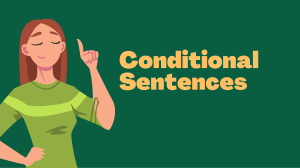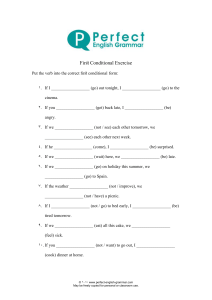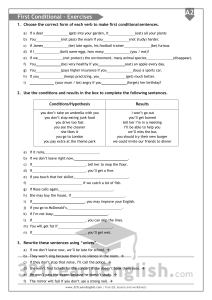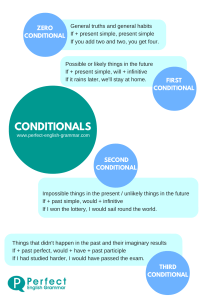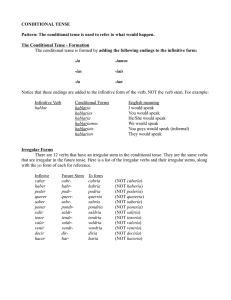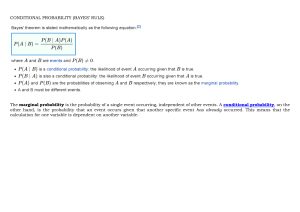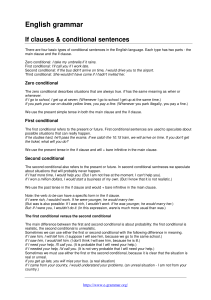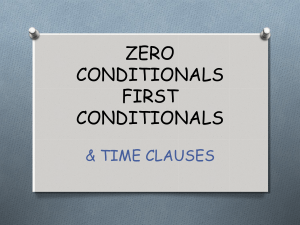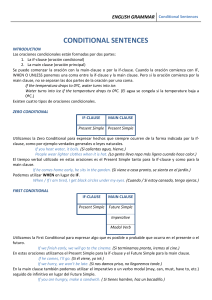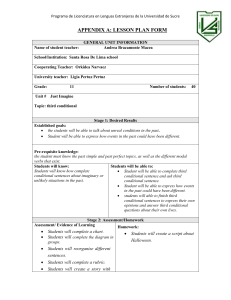Si clauses
Anuncio
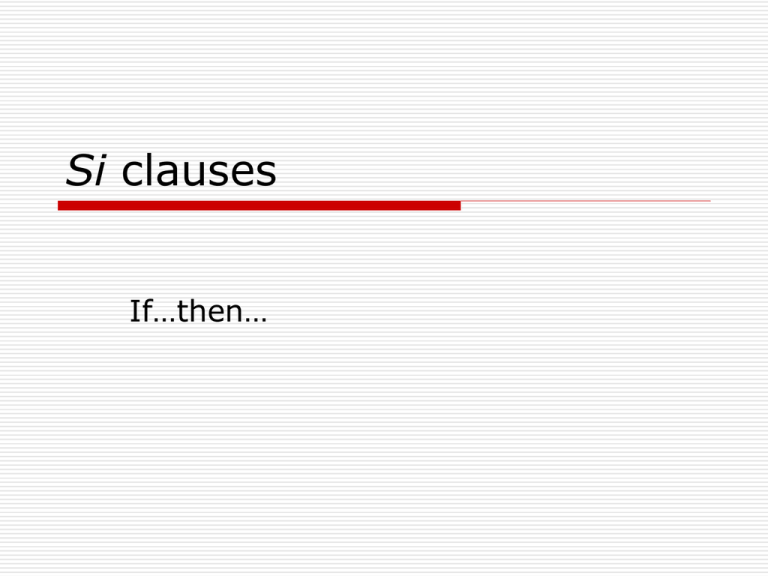
Si clauses If…then… Circumstantial sentences There are four different types of circumstantial statements. All four types can begin with the word “si” meaning “if” These sentences state circumstances that need to be met in order for something to occur. 4 types of conditional sentences (Si-clauses) 1. Open conditions In the “Open Conditions”, the verb in the siclause is in the present indicative… The verb in the resultant clause is in the present indicative or the future tense. Si + present + present Si tengo tiempo, voy al cine. Si + present + future Si tienes un examen, te cocinaré la cena. More Examples Si vienes conmigo, te compro algo. If you come with me, I’ll buy you something Si no estudias, no vas a aprobar la clase. If you don’t study you are not going to pass. Si ahorras dinero, tendrás más oportunidades en el future. If you save money, you will have more opportunities in the future. The future… Remember that there are several ways to express a future action in Spanish and these can be used in the “Open Conditional” si-clauses… Review of some future constructions… Ir a + infinitive Tener que + infinitive Pensar + infinitive 4 types of conditional sentences (Si-clauses), con’t. 2. Remote Conditions In the “remote conditions”, the verb in the si-clause is in the past subjunctive… The verb in the resultant clause is in the conditional. Si + past subj. + conditional Si tuviera dinero, compraría un coche. 4 types of conditional sentences (Si-clauses), con’t. 3. Unfulfilled Conditions In an “unfulfilled condition” the verb in the si-clause is in the pluperfect subjunctive… The verb in the resultant clause is in the perfect conditional. Si + pluperfect subjunctive + conditional perfect Si hubiera visto el policía, habría parado el coche. 4 types of conditional sentences (Si-clauses), con’t. 4. Fulfilled Conditions There really are no conditions to be met in these phrases, just explanations why, because or whenever. The verb in the si-clause is never in the subjunctive. Si apagaba las luces, era porque no quería gastar mucha electricidad. If he turned off the lights, it was because he didn’t want to waste too much electricity.
